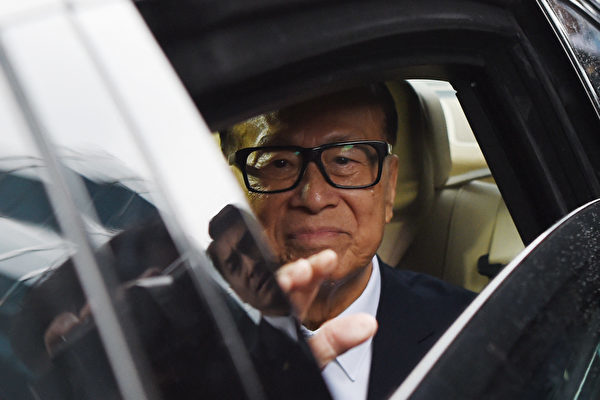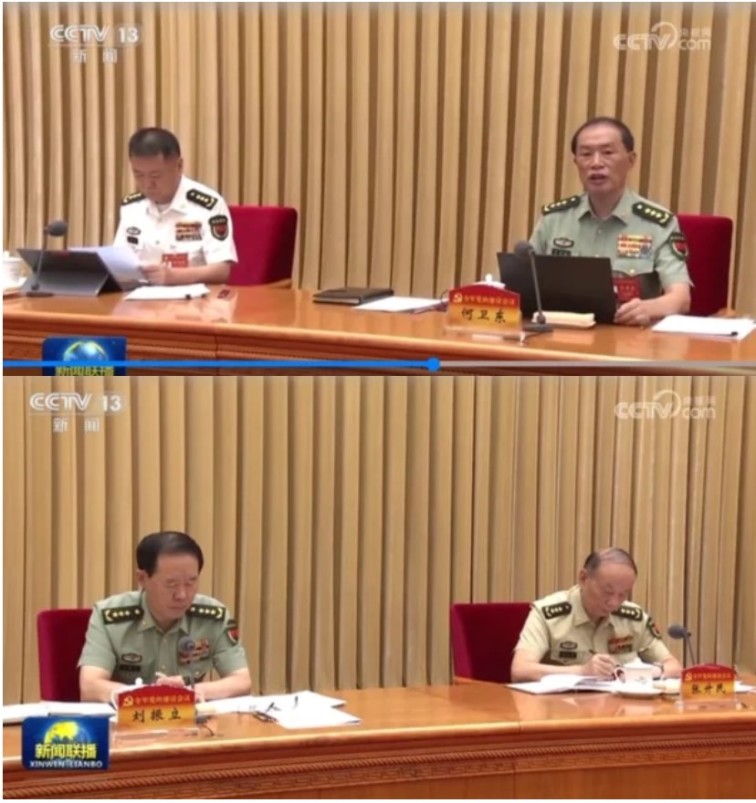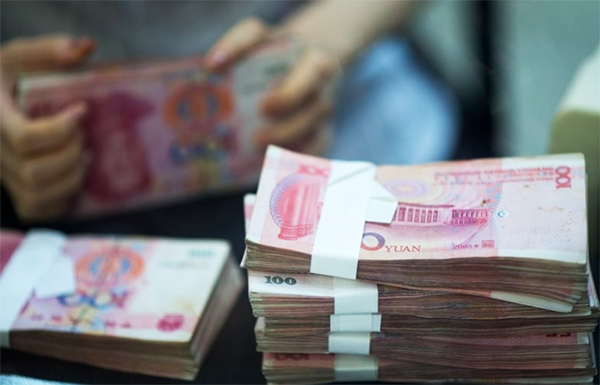On May 10, 2018, Hong Kong tycoon Li Ka-shing officially retired after presiding over a shareholders ' meeting. (Anthony Wallace/AFP)
[People News] On June 27, the Hong Kong Special Administrative Region government announced the list of 34 members for the new Chief Executive's advisory group. Notably absent from this list was Li Ka-shing's eldest son, Li Zeju, chairman of CK Hutchison Holdings. The other two members who were not reappointed are Fu Yuning, the former chairman of China Resources Group, and the late founder of SenseTime, Tang Xiao'ou. All other advisory members were retained. Since the establishment of the Chief Executive's advisory group in Hong Kong in 2023, it was expected that Li Zeju, a prominent business tycoon, would be included. Now, at a time when he is in good health and at the peak of his career, his exclusion suggests there are political motivations behind this decision.
This action signals that CK Hutchison Holdings has not succumbed to Beijing's pressure regarding the Panama Canal deal, which has provoked anger from the Communist Party of China (CPC).
Following U.S. President Trump's inauguration, he expressed strong dissatisfaction with the CPC's influence over the Panama Canal, aiming to protect American interests, and pressured Panama to reclaim management rights over the canal. In March of this year, CK Hutchison Holdings reached an agreement with a consortium led by U.S. BlackRock to sell several of its ports, including two ports in the Panama Canal, for $22.8 billion.
This deal has drawn ire from the CPC, with pro-China media in Hong Kong publishing a series of sharp criticisms. The Hong Kong and Macao Affairs Office and the Liaison Office of the Central People's Government also shared these critical articles, and the CPC announced it would investigate whether the transaction violated antitrust laws. The CPC understands that if the deal goes through, the cost of Chinese goods exported will rise significantly, impacting China's foreign trade, shipbuilding, and even military capabilities. How could the CPC not be concerned?
Following the Chinese Communist Party's (CCP) naming of specific individuals, the transaction was temporarily paused, but the companies under Cheung Kong did not cancel the deal as the CCP had hoped. In May, the CCP sought to exert pressure on the Li family by announcing that Cheung Kong Holdings was under investigation by the Hong Kong Independent Commission Against Corruption for construction malpractice. This series of actions serves as a warning to the Li family.
However, recent developments indicate that Li Zeju has been excluded from the Chief Executive's advisory group, suggesting that the CCP's warning has not impacted Cheung Kong Holdings; the transaction appears to remain active or uncanceled, which undoubtedly frustrates the CCP, compelling them to take further action. Will this additional 'threat' influence the Li family's decision?
Meanwhile, it has been observed online that mentions of 'Changjiang Scholars' on the Ministry of Education's official website have significantly decreased. In 2025, there were no mentions, in 2024 there were only 7, in 2023 there were 9, and in 2022 there were over 10, while prior years consistently featured at least 20 mentions.
According to data, 'Changjiang Scholars' refers to recipients of the 'Changjiang Scholars Award Program,' a specialised high-level talent initiative jointly established by the Ministry of Education and the Li Ka Shing Foundation. The title of 'Changjiang Scholar' is both academic and honorary, categorised into distinguished professors and chair professors, with distinguished professors serving a five-year term and chair professors a three-year term.
In the latter half of 2018, it was disclosed that three individuals had their "Changjiang Scholar" titles revoked due to ethical misconduct. As of now, at least 152 "Changjiang Scholars" have had their awards suspended by the Ministry of Education, and several scholars have recommended enhancing the management of the "Changjiang Scholars" program, which has also been put on hold again. Additionally, it has been reported that since 2018, all activities related to the selection of "Changjiang Scholars" are classified, making it challenging to find a complete list of the new annual selection results online.
While the Ministry of Education of the Communist Party of China does not address the issues surrounding the scholars selected as "Changjiang Scholars," there is another significant reason: this program is funded by the Li Ka Shing Foundation. Given the Li family's current controversial status, it is prudent not to mention it.
So, under the various pressures from the Communist Party, will the Li family yield? It seems unlikely. A decade ago, the astute Li Ka Shing began to gradually withdraw from mainland China, redirecting investments towards infrastructure and energy projects in Europe and Australia. Recent data indicates that despite facing some challenges, CK Hutchison Holdings' total assets have grown from HKD 1,032.94 billion to HKD 1,064.55 billion over the past ten years, marking an increase of over 3%. This performance is quite commendable compared to other companies amid the economic crisis in China and the Sino-U.S. trade war.
Consequently, many analysts believe that even if the Li family is excluded from the Chinese market, the impact will be limited. Since Li Ka Shing has opted to distance himself from the mainland and collaborate with Western capital, it suggests that he is not optimistic about the Chinese market. What strategies will the seasoned Li Ka Shing and his son, Li Zeju, adopt in response to the Communist Party's increasing pressure? △
(Originally published by People News)











News magazine bootstrap themes!
I like this themes, fast loading and look profesional
Thank you Carlos!
You're welcome!
Please support me with give positive rating!
Yes Sure!